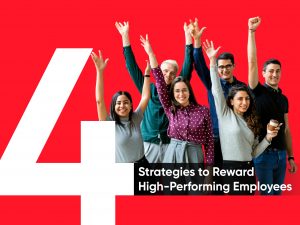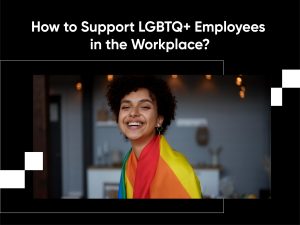Reading Time: 4 minutes
Intergenerational workplace collaboration promotes flexibility, automation, and digitalization. This trend is happening in established business centers and emerging cities. In addition, as companies grow, they are witnessing four generations of workers under one roof, including baby boomers, Generation X, Millennials, and Gen Z. Hence, many organizations are implementing programs that focus on supporting diverse staff.
Gen Z, born between 1995 and 2010, is the most diverse generation in history. The increasing presence of Gen Z in the workforce has prompted businesses to make changes, but it still needs to be determined how this demographic will shape the future of work.
Emphasis on Work-Life Balance
With Gen Z entering the workforce in large numbers, their unique values and perspectives significantly influence company policies and benefits. One of the most significant ways is through their emphasis on work-life balance.
For Gen Z, work is essential, but so is their personal life. They want to avoid being tethered to their jobs 24/7 and expect a healthy balance between work and personal life. This means they push for more flexible working hours and arrangements, including remote work, flexible schedules, and job-sharing options.
To meet this demand, companies are increasingly offering flexible work arrangements, including flexible schedules and remote work options. Many organizations have also introduced policies around paid time off, parental leave, and other benefits to help employees balance their work and personal lives. For instance, some companies offer unlimited vacation time, allowing employees to take time off when needed without worrying about accumulating unused vacation days.
Prioritizing Mental Health in the Workplace
Indeed, mental health is an area where Gen Z significantly impacts company policies and benefits. Mental health is a growing concern, with increasing rates of anxiety, depression, and burnout affecting people of all ages. However, Gen Z is leading the charge in prioritizing mental health in the workplace.
This generation is more open about discussing their mental health struggles and expects their employers to be supportive.
Companies are beginning to offer mental health benefits such as therapy, counseling, and mental health days off. Some companies have even created employee resource groups (ERGs) focused on mental health, providing a supportive community for employees to share their experiences and find resources.
In addition to offering mental health benefits, companies are also working to create a culture that supports mental wellness. This includes training managers on how to recognize and address mental health issues, creating a stigma-free environment where employees feel comfortable discussing their mental health and promoting healthy habits such as exercise and mindfulness.
Gen Z’s emphasis on mental health is leading to positive changes in company policies and benefits, creating a more supportive and inclusive workplace for all employees. As companies continue to prioritize mental health, other generations will likely benefit from these changes as well.
Diversity, Equity, and Inclusion in the Workplace
Gen Z is a highly diverse generation passionate about inclusivity and equality. They have grown up in a world where diversity is celebrated, and discrimination is not tolerated, which has made them highly aware of the importance of creating an inclusive work environment. As a result, companies are pressured to adapt to the values and expectations of Gen Z regarding diversity and inclusion.
One of the most significant ways that Gen Z impacts diversity and inclusion in the workplace is by expecting their employers to promote it actively. They want to work for companies that not only talk about diversity and inclusion but also have policies and practices that reflect these values. Companies must reassess their hiring practices to ensure they are diverse, equitable, and inclusive. This includes recruiting from a wider pool of candidates, providing that job descriptions and hiring processes are free from bias, and creating employee resource groups for underrepresented communities.
Influence on the gig economy and Remote Work Culture
The rise of the gig economy and remote work is a trend that has been on the rise for a while now, but it is Gen Z driving it forward. This generation values flexibility, independence, and the ability to work on their terms. They are not tied to the traditional 9-5 work schedule and are open to working freelance or contract jobs. This preference for flexibility pushes companies to reassess their policies around remote work and gig workers.
Companies recognize the benefits of offering remote work options to attract and retain top talent. It allows employees to work from anywhere in the world, eliminates commuting time and costs, and can increase productivity. Moreover, Gen Z values the ability to work independently and take on freelance or contract jobs to supplement their income, so companies need to adapt their policies to account for this new type of workforce.
Gen Z’s impact on company policies and benefits is significant and far-reaching. This generation is driving changes in the workplace that will have lasting effects on how companies operate. To attract and retain top talent from this generation, companies will need to be flexible, inclusive, and supportive of their employees’ work-life balance and mental health.
Learn more about how to establish a good work environment and become the employer of choice from our workplace culture specialists.











